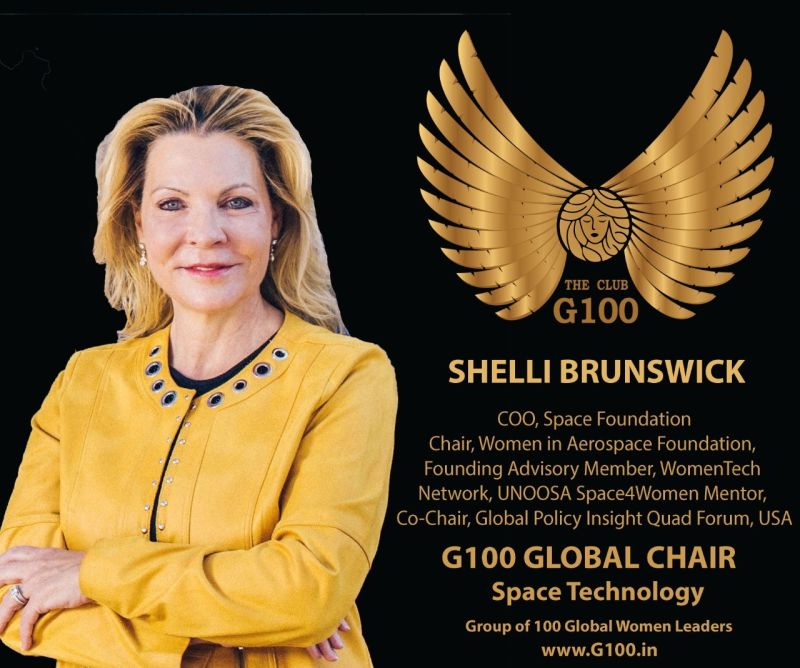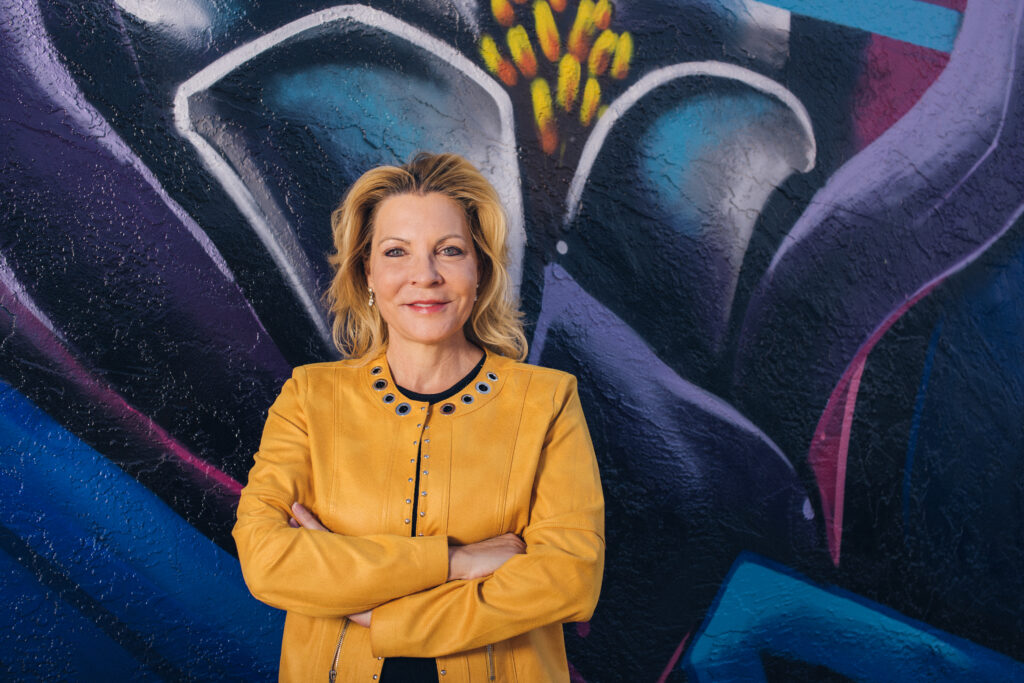FWM: Tell us about your journey serving in the Air Force in Turkey and Germany.
I look at my career in four distinct phases. First, I joined the Air Force right out of high school. I was stationed in Turkey and Germany, which gave me the chance to learn and understand other people, customs and cultures. I also worked toward my bachelor’s degree, courtesy of the Air Force’s tuition assistance program, taking classes at night while I served in the military by day.
After Turkey and Germany, I was stationed at the U.S. Air Force Academy in Colorado Springs, where I completed my bachelor’s degree. After completing my degree through Colorado State University Pueblo and serving 12 years as an enlisted airman, I was fortunate to be promoted to a space acquisition officer. This is where I really connected with space and learned how big the space industry could be, even at a time when the only way to get involved came through civil agencies such as NASA or through the military. It meant looking at ground stations, military launch vehicles, and satellites because that’s what space was at that time. It’s so much more today!
I went on to earn my master’s degree, completed Air War College, and served my last years in the U.S. Air Force on Capitol Hill in a dream-come-true job as a congressional liaison to the U.S. House of Representatives, working through the ins and outs of space policy, budget and appropriations. This period gave me an understanding of the importance of advocacy, outreach and processes, and taken altogether, these experiences supplied all the necessary tools to become a strong candidate for a senior leadership position.
Space Foundation and the launch of the Center for Innovation and Education marks my latest phase, which I think will be the most important ever because of the size of the opportunity and the lives that will be touched through this vital work.
FWM: You are the COO of Space Foundation. How have you increased the leadership capabilities in the aerospace community?
My work to champion the inclusion of underserved groups in the space and aerospace community stems from staying true to the values instilled while I was in the military: a passion to share my journey, give back to the space community, and contribute to the development of the next-generation workforce. As a leading role model for women in space, I was just named the winner of the Global Technology Leadership Award for 2021, and last year I received the 2020 Diversity and Inclusion Officer and Role Model of the Year by WomenTech Network. Also, I was named a Woman of Influence by the Colorado Springs Business Journal and a Top Women in Aerospace and Aviation to Follow on LinkedIn!
I speak at organizations and events around the globe to advance space technology innovation partnerships and collaboration, chair the Women in Aerospace (WIA) Foundation, chair Space Entrepreneurship at Tod’Aers, chair Space Tourism Society Africa, co-chair Global Policy Insight Quad Forum, and host the Women’s Global Gathering annually at Space Symposium. In addition, I am one of only 54 women worldwide to be selected by the United Nations as a mentor for its Space4Women program, and I am a World Business Angels Investment Forum (WBAF) Senator for the United States of America and serve as a board member for their Global Women Leaders Committee. Recently, I was selected as the G100, Global Chair for the Space Technology Wing. Regionally, I sit on the board of directors for Manufacturer’s Edge and the Colorado Springs Chamber & EDC.

FWM: Can you share a few challenges during your career?
I would say it all comes back to looking at every challenge as an opportunity. Life and work are not easy. There are always challenges. Do you invest in yourself and take advantage of programs like tuition assistance to go to school in your spare time? Are you motivated to step away from your desk to go to an event and make the connections that you or your organization need? I want people to feel empowered to find cracks where opportunity can hide. This holds true for identifying opportunities for Space Foundation and the Center for Innovation and Education as well.
As a leader, I try to guide my team while also taking care of them because without our people, the organization cannot accomplish its goals. So, I am constantly asking myself things like “Are you helping your people learn? Are you giving them opportunities to improve themselves? Are you giving them opportunities to learn new skills on the job?” Taking care of the team is especially important today as we make our way through the pandemic. Some people may handle the situation better than others. I check in and want to make sure they are ok. Is there anything I can do for them and their families? Keeping the workforce mentally healthy is imperative if we aspire to a better tomorrow.
FWM: How big is the aerospace market?
Let’s look at the global space ecosystem of which aerospace is a segment. “The Space Report,” an authoritative report on the global space ecosystem published by Space Foundation, found that in 2020, the global space economy rose to $447 billion, an increase of 4.4% from a revised 2019 total of $428 billion. This $447 billion space economy is 55% higher than a decade ago and part of a five-year trend of uninterrupted growth. The global space ecosystem is expected to grow to $1-3 trillion by 2030.
FWM: What is your vision for the global space ecosystem?
There is no doubt that space innovation is essential to every critical infrastructure on Earth. To fulfill the $424 billion market opportunity forecasted to reach $1.4 trillion by 2030, my vision for the global space ecosystem aligns with Space Foundation initiatives that enable all people in all industries and regions of the world to advance space technology innovations for the future of humanity and planet Earth:
- Space: Era of Access and Opportunity. The commercial sector led by Blue Origin, Virgin Galactic, and Space X is opening up a new era of access and opportunity. As history has shown, when we create more access, we create more opportunity for people, jobs, research and innovation — both in space exploration as well as applied to advancing innovations to benefit daily life on Earth.
- Space Innovation Is Here on Planet Earth. The space ecosystem must be defined as space exploration and space-inspired industries here on Earth, most evident by the direct connection between our daily lives and space technology innovations such as communication across the globe, weather prediction, health care advancements, supply chain operations, precision agriculture, advanced manufacturing and more.
- Space for You. Space for All. The space industry needs an inclusive and diverse workforce so that everyone in all skill sets — STEM and non-STEM — can pursue studies, jobs, careers and business ventures that contribute to solving the world’s most pressing issues. This means we need artists, designers, trade workers, data analysts, project managers, administrators, inventors, entrepreneurs, engineers and, yes, scientists too.
- When We Solve for Space, We Solve for Earth. With more than 80% of business opportunities in the space sector generated from commercial enterprises, the vibrant supply chain of entrepreneurs and small businesses must commercialize thousands of available space technology patents that can contribute to bettering life on Earth.
- Space Policy and Cybersecurity: A Force Multiplier. Infrastructure sectors are interdependent, and if one falls to cyberattack, there is a cascading effect with potentially dire consequences. We can no longer separate space and cybersecurity. Global space policy directives for systemic resiliency and sustainability must be created in order to preserve the safety and security of space infrastructure and operations.
- The Future of the Space Ecosystem Is Global Partnership. More than 85 countries and thousands of commercial enterprises and supply chain entrepreneurs are rising up to operate in the space ecosystem. As each contributes to discovery and innovation, global partnerships are how we will collectively educate and train people to meet the growing workforce requirements and economies.
- Sound Decisions Require Trusted Information. As more people, nations and businesses participate in the global space ecosystem, data is increasing exponentially while delivery platforms are expanding virtually. Accuracy and neutrality of news and information is essential.
FWM: Share the reasons why women will pursue careers in space technology and space travel?
Absolutely, more women will pursue careers in space technology and space travel for two primary reasons: access and opportunity. Eighty percent of new opportunities in the space ecosystem are in the commercial sector, and the resilient space economy is expected to grow to $1-3 trillion by 2030. Traditional barriers to entry are going away as a broader range of industries are relying on space technology in new and exciting ways. Opportunities are now accessible in virtually every community around the world to a talent pool that extends from rocket scientists to project managers to welders. As we say, “there is no better time to be a part of the space industry.”

FWM: You are a finalist for the Global Technology Leadership Award and Speaker of the Year category.
Yes, this week I was named the winner of the Global technology Leadership Award for 2021 by WomenTech Network.
FWM: Have diversity and inclusion always been your core values?
Yes, diversity and inclusion have always been at the basis of my core values to fuel space innovation and improve the quality of life on Earth. In 2021, I presented and delivered nearly 100 speeches, consistently advocating for diversity and inclusion to create access and opportunity for all.
FWM: Share your upcoming events.
Here are a few highlighted speaking events: TerraWatch Space; World Space Week Association, Women in Space: Empowerment through Education; SheLeads with Carly Show; Inspiration Tuesdays, Global Space Congress Edition; Inspiration and Creating the NEWSPACE Economy; 20 Minute Leaders; and A Seat at the Table: Leadership, Innovation & Vision for a New Era.


